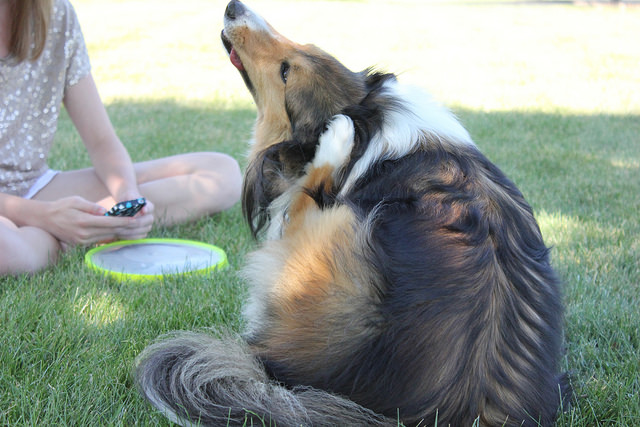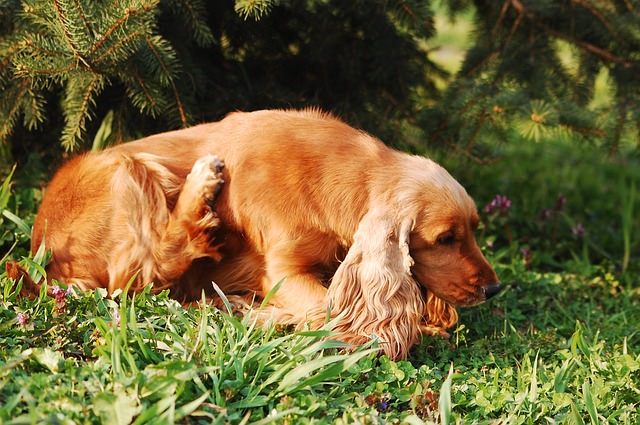Thump, thump, thump. Jingle, jingle, jingle. These are not the sounds of Santa Claus and his reindeer. These are the familiar sounds of an itchy dog. Itching, also called pruritis, is triggered by nerves in the skin. Anything that makes the itch nerves fire can create itching. Scratching dogs can drive us crazy! We just want to make it stop! The first step to solving the problem is trying to figure out why your dog is itching.
Related: 4 Best Goat’s Milk Supplements for Help Your Itchy Dog

External Parasites
Parasites, like fleas, are a very common cause of itching in dogs. Any dog, no matter how clean, can have itching from fleas. People say all the time that they never see a flea, but that’s just it- you won’t see them until the infestation is severe. The adult flea has most of its life cycle off the pet. They only jump on your dog to feed and then back off again to lay eggs in your environment. Fleas have very irritating saliva and their bites cause intense itching. If your dog is allergic to flea saliva too, then the itching is even more unrelenting.
Mange
There are other issues that create itching, like mange, which is also caused by a parasite. Mange mites burrow into the skin and cause intense itching. Some forms of mange are contagious between dogs. There are other mange mites that are not contagious, but still make pruritis (itching) and inflammation. Depending on the specific type of mange, the itching can be extreme and may be accompanied by hair loss and odor.

Allergic Disease
Allergies are another cause of itching in dogs. A dog can be allergic to many different things, but they usually fall roughly into two categories: inhalant (things dogs breathe), or food allergies (things they eat). Inhalant allergies are like hay fever for people, except they will cause skin itching more commonly than sneezing and coughing. Dogs suffering from inhalant allergies are very itchy. A lot of dogs suffer from allergic disease and although a cure is unlikely, there are things that can help.
Foods
Food allergy is not as common as inhalant allergy, but it does exist. To truly diagnose food allergy, your vet will recommend a food trial in which your dog ONLY eats the prescription diet for a prescribed period of time. If the itching resolves during the trial, food allergy becomes a likely cause. Then you can decide if you want to keep your dog on the prescription diet or start to add in one food item at a time to see if the signs return. Be aware that commercially available diets, even ones that say “hypoallergenic” are not truly a food trial and may not be effective for diagnosing the problem.
There are other less common causes of itching and only your veterinarian can help you know for sure what is causing your dog’s trouble.
So what do you do about itching? The most important thing to understand is that severe itching is usually a sign of a medical problem and your first stop should always be your veterinarian. Don’t wait! You may be tired of hearing the noises of scratching and biting, but just think how your dog feels.
Do you like learning about dogs and other animals? I sure like talking about them. Join the conFURsation on Facebook by clicking here.
Featured Image: Takashi Hososhima via Wikimedia Commons
 Toledo, United States.
Toledo, United States.